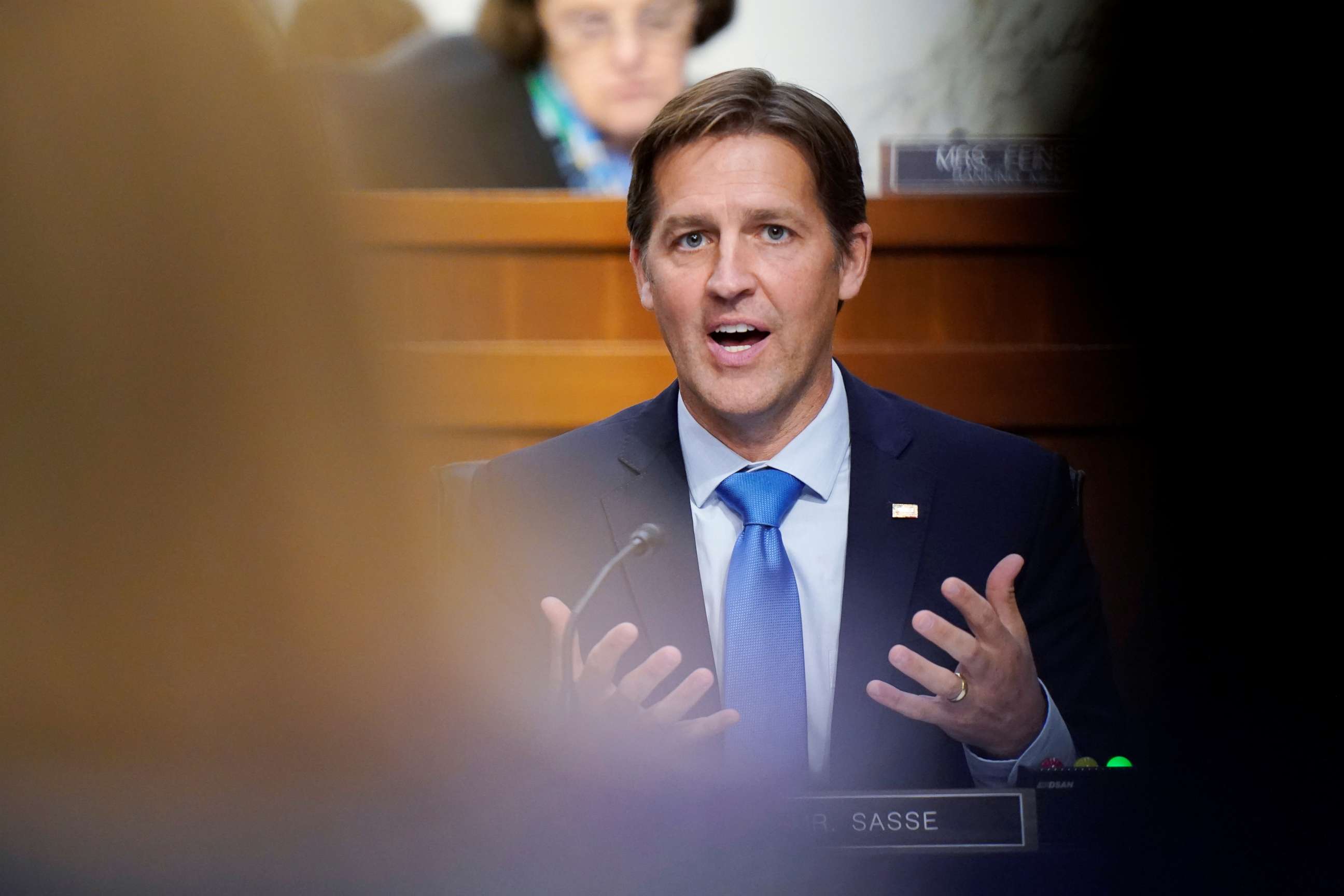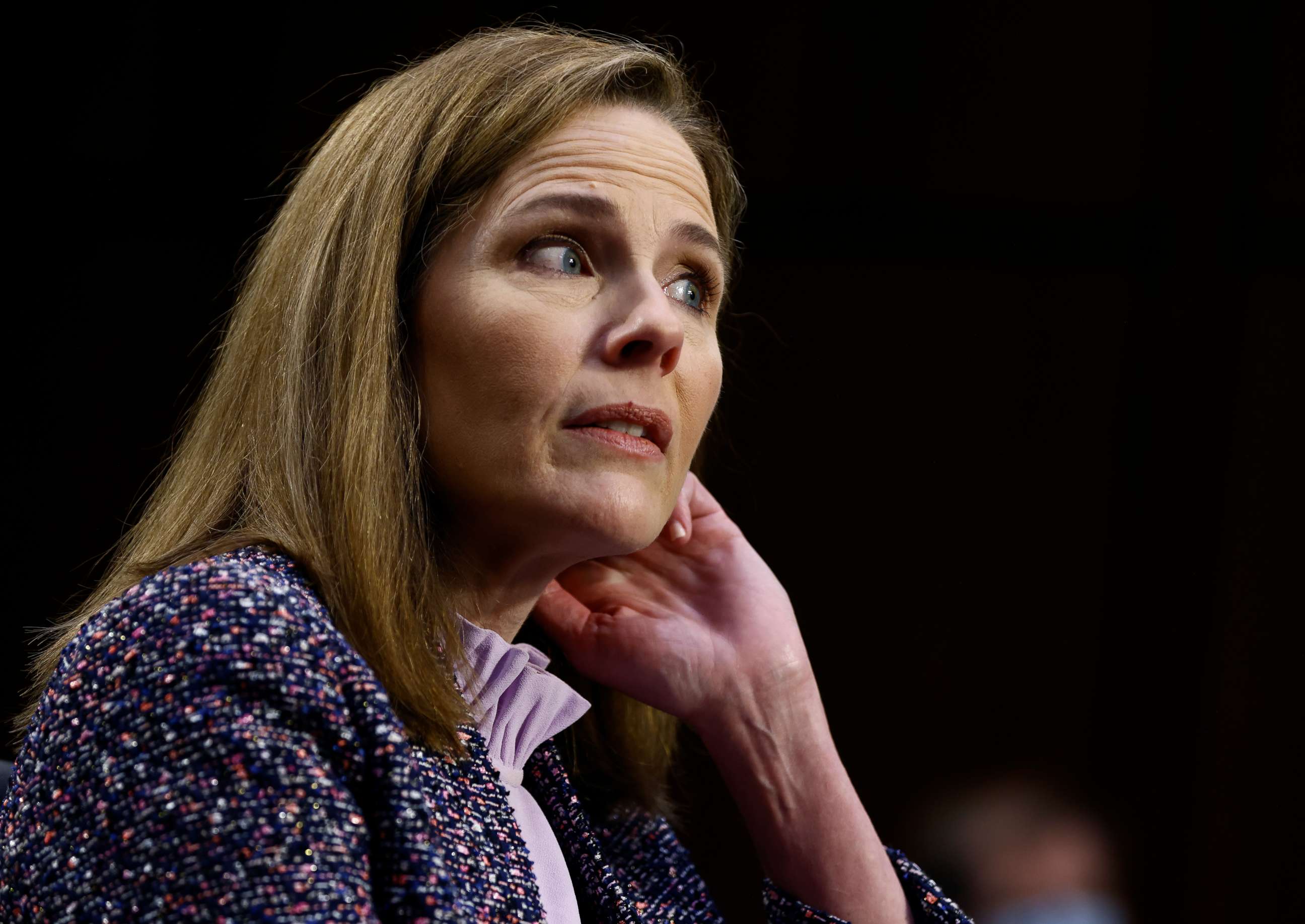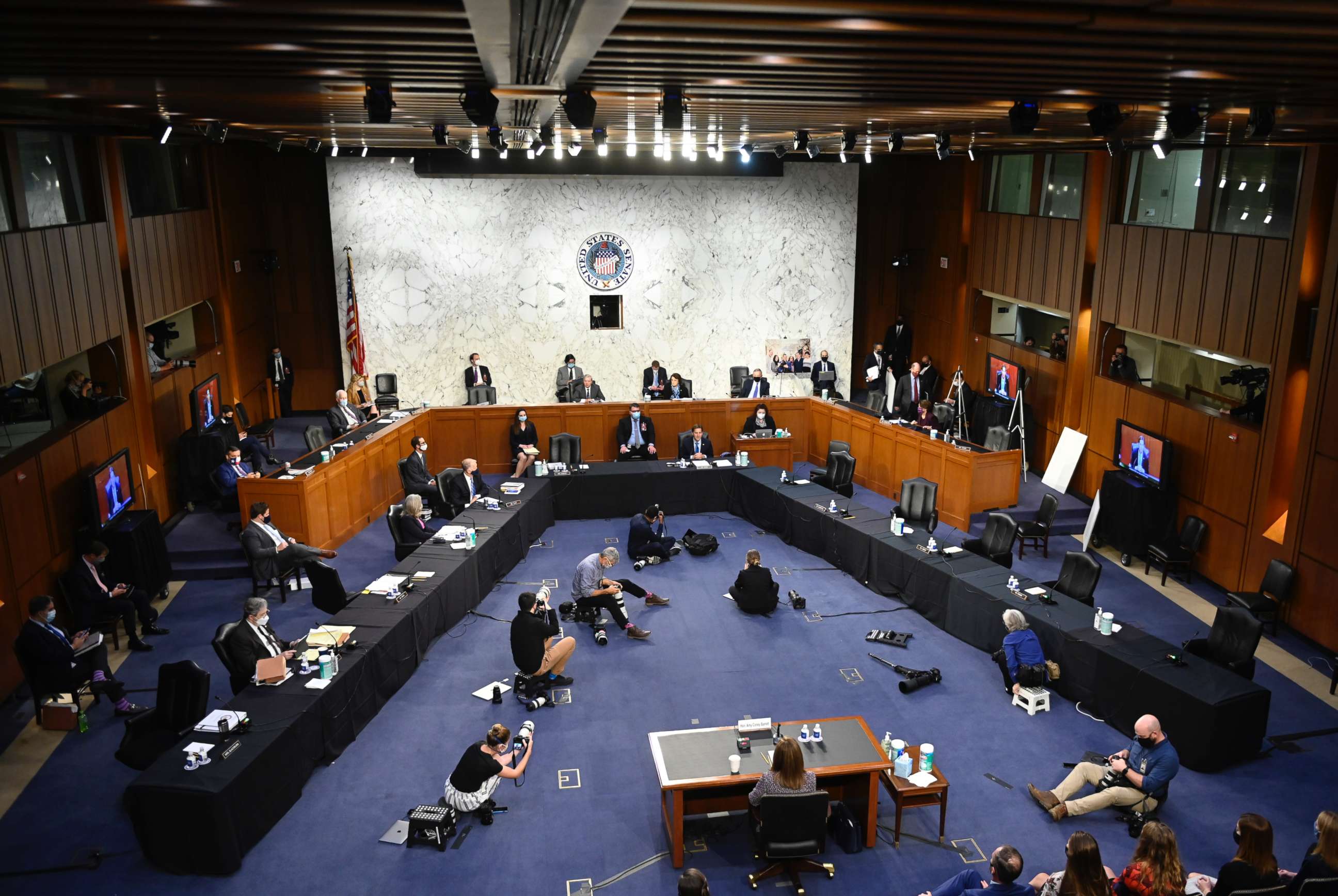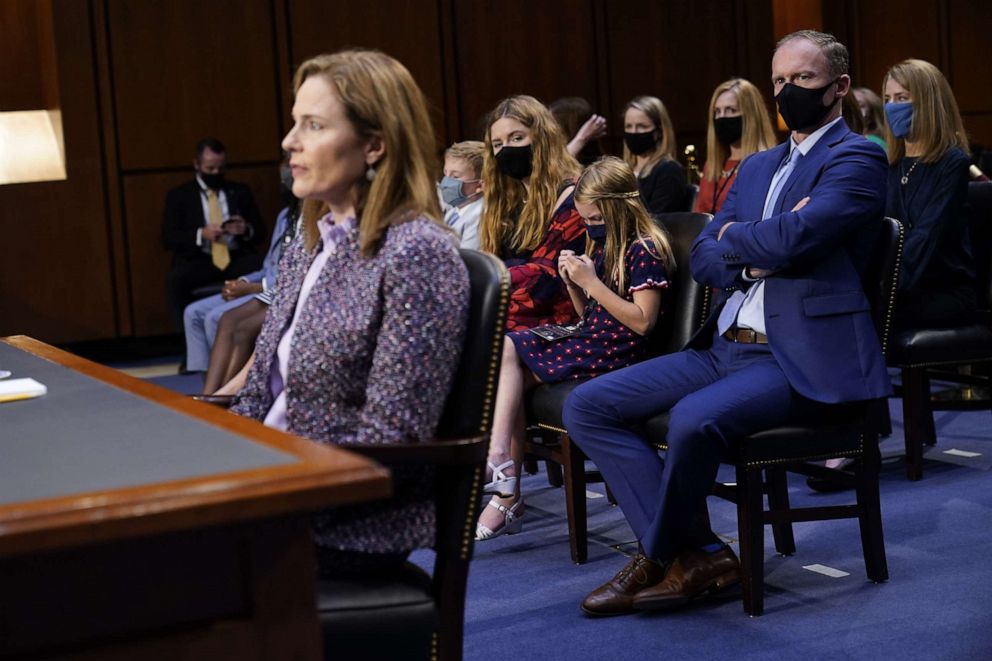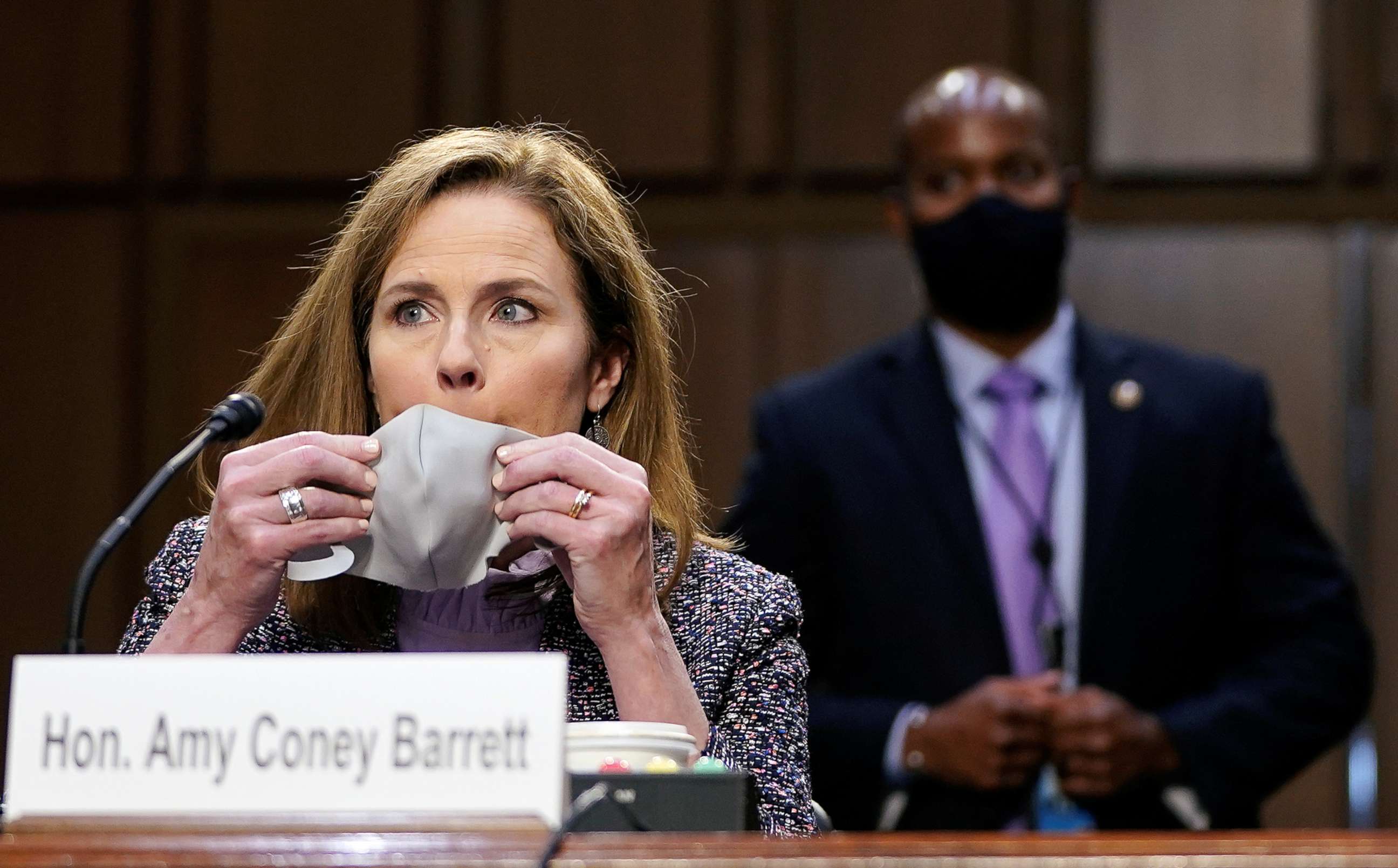Barrett defends herself when pressed on why she won't comment on same-sex marriage case
In a testy line of questioning on protections for LGBT Americans, Sen. Richard Blumenthal, D-Conn., pressed Barrett to say whether she agreed that Obergefell v. Hodges, which legalized same-sex marriage, was a sound decision.
While Barrett would say Brown v. Board of Education, which deemed segregation in public schools unconstitutional, and Loving v. Virginia, which did the same for laws banning interracial marriage, were clearly-established precedents, she wouldn’t explicitly say the same about Obergefell.
"Your honor, think of how you would feel as a gay or lesbian American to feel that you cannot answer whether the government can make it a crime for them to have that relationship, whether the government can allow people who are happily married to be overturned," Blumenthal said.
"Well, you are suggesting that I am going to overturn, and you are pushing me to violate the cannons of ethics, and I will not do that,” Barrett interjected, repeating that she should not suggest agreement or disagreement with precedents of the Supreme Court.
Blumenthal said, in turn, Americans have the right to know her legal positions on the cases he presented.
"I am surprised and I think that a lot of Americans will be scared that the people they want to marry could have marriage equality cut back and in an America where I would not want to live," he said.
"Well, senator to suggest that is the kind of America that I want to create is not based in any facts of my record and that quote that you read to me from the article talked about it being par for the course for those questions to be asked, but it did not say about whether it is appropriate for the nominees to answer it," Barrett replied.
On Tuesday, Barrett apologized to the LGBT community for using the term "sexual preference" instead of "sexual orientation."
